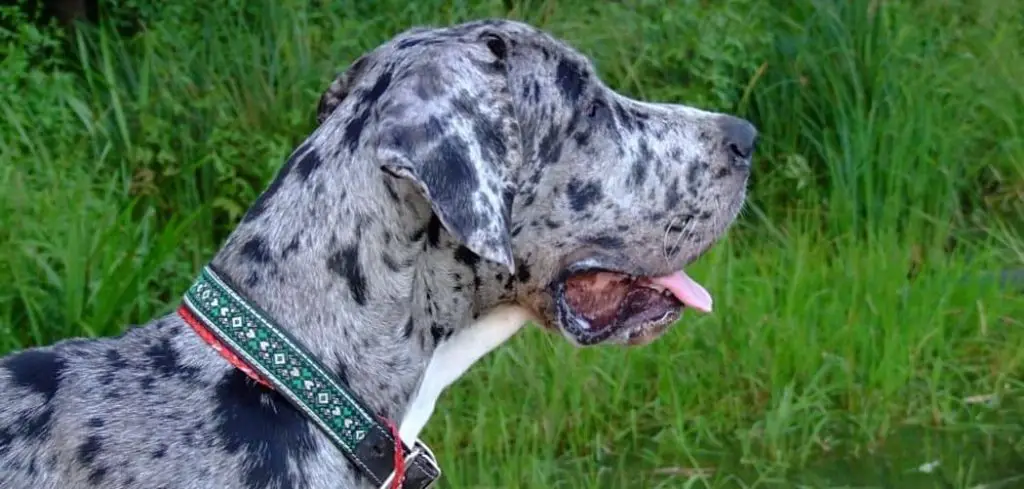Seeing your dog panting heavily and obsessively digging after giving birth can be alarming — especially if you’re unsure what’s normal and what isn’t.
We outline the common reasons why your dog may pant and dig after giving birth, what you can do at home, and when to seek veterinary help.
Table of Contents
Dog Panting and Digging After Giving Birth — Why It Happens
Panting and digging are often linked to physical exhaustion, hormonal changes, maternal instincts, or even complications after delivery.
Your dog’s body undergoes major shifts during and after labor — both physically and emotionally. Panting may be her way of dealing with pain, stress, or temperature regulation, while digging can be an instinctual nesting behavior.
However, if these behaviors continue or worsen, they could indicate infection, retained placenta, or other medical concerns.

Common Reasons Why Your Dog May Pant and Dig After Giving Birth
Hormonal Fluctuations
After giving birth, a dog’s body goes through a surge of hormones to support milk production and maternal behaviors.
These hormonal changes can cause restlessness, panting, and repetitive digging as part of natural nesting instincts.
Panting can also be a side effect of the uterus contracting back to its normal size, which may be uncomfortable for the dog.
While this is often a normal postpartum response, it should begin to subside within a few days.
Related: Dog panting excessively (Causes and What To Do)
Retained Placenta or Fetal Material
If any placental tissue or fetal remains were not fully expelled during birth, they can cause infection or uterine inflammation.
Dogs with a retained placenta may appear uncomfortable, pant excessively, or dig in an attempt to ease internal discomfort.
You may also notice vaginal discharge that smells foul, lethargy, or a drop in appetite — all signs that warrant urgent attention.
This condition can quickly become serious and requires immediate veterinary treatment.
Postpartum Pain and Discomfort
Labor is exhausting, and your dog may continue to feel cramping or abdominal discomfort for a day or two afterward.
Panting is a natural response to pain, and digging can be a displacement behavior — a way for dogs to cope with stress.
This is usually temporary, but if your dog seems unable to settle, it’s a sign she needs support.
Pain management or anti-inflammatory medication may be necessary under a vet’s guidance.
Maternal Anxiety or Protective Behavior
New mothers can become highly anxious, especially if they feel their pups are threatened.
Panting and digging could stem from emotional overstimulation or hyper-vigilance.
She may dig at bedding to hide or “re-nest” her puppies, even if they’re already in a safe space.
If she’s growling, snapping, or showing excessive concern, you may need to minimize environmental stressors and offer reassurance.
Related: Dog Panting and Shaking After Giving Birth (Here’s Why)
Hypocalcemia (Eclampsia)
One of the most dangerous conditions that can occur after giving birth is eclampsia, or low blood calcium.
It often develops in nursing mothers, especially small breeds, and can cause panting, muscle tremors, disorientation, or even seizures.
If your dog is panting and pacing, seems confused, or is unable to settle down, this could be a medical emergency.
Prompt calcium supplementation is essential and can be life-saving if administered quickly.
Internal Infection or Metritis
Metritis is an infection of the uterus that can occur within days of delivery.
Panting, fever, digging, foul-smelling discharge, and lethargy are hallmark signs.
She may also reject her puppies or stop nursing, which puts the whole litter at risk.
Treatment typically includes antibiotics and sometimes hospitalization.
What to Do If Your Dog Is Panting and Digging After Giving Birth
Make sure your dog is in a quiet, calm environment where she feels safe. Reduce foot traffic around her whelping area and keep the space dim and temperature-controlled.
Allow her some space, but check on her often for signs of distress. Keep the whelping box clean and soft to prevent digging-related injuries.
If she seems agitated, gently redirect her with praise or offer water to calm her down. Sometimes, a light snack can ease stress if she’s not nursing.
Do not attempt to stop her from digging unless it’s endangering the puppies. Instead, provide safe materials like towels or blankets that she can “nest” in.
Keep her hydrated, rested, and nursing comfortably — any changes in those routines should raise a red flag.
When to Call or Visit Your Vet
If your dog continues panting heavily more than 24–48 hours after delivery, it’s time to consult a vet.
Panting combined with digging, restlessness, and other symptoms could mean she’s in pain or unwell.
Call your vet immediately if you notice:
Foul-smelling or discolored vaginal discharge
Trembling, shaking, or muscle stiffness
Rapid breathing or heart rate
Refusal to eat or nurse her puppies
Aggressive or unusual behavior
Swelling of the mammary glands
Quick intervention can save both the mother and her pups from preventable complications.
Read more: Dog Nesting and Not Eating (Here’s why)
Key Takeaway
Postpartum panting and digging can be part of the natural healing and nesting process — but it’s important to monitor the frequency and intensity.
If your dog seems distressed, unwell, or not returning to normal within a day or two, it’s safest to call your vet.
With supportive care and prompt action, your dog can recover comfortably and focus on nurturing her new pups.
